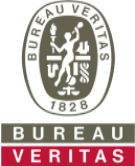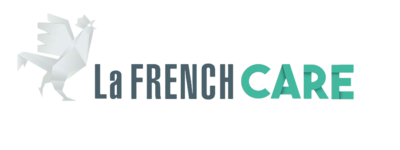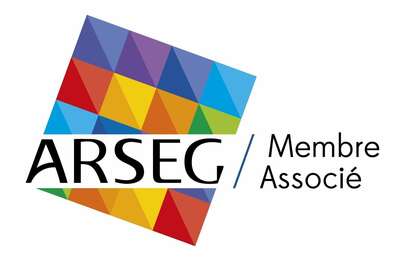The fifth wave of Covid-19 is barely behind us, but another one is already on the way. Where is it coming from? The American coastline, where an unprecedented wave of departures has been raging since last summer. Indeed, the so-called Great Resignation has led 4.5 million employees to leave their jobs in November alone. This is a new record after the 4.3 million recorded in August 2021. As a result, there are now 10.7 million job vacancies in the US, or one and a half jobs for every unemployed person! This is the highest number of job vacancies since American statistics began.
And in France, what do the figures say?
With the unemployment rate at its lowest level since 2008, the wave of resignations seems far from having reached its peak. However, according to a study by Qualtrics, 35% of French employees are planning to look for a new job in the next 12 months*. A plan that may upset those companies that, in ever-increasing numbers, are reporting difficulties in recruiting. The reason? The relationship to work rethought in the light of the health crisis. This hypothesis comes up against the reality of the figures, however. The resigners are not the ones we think they are. Coming from the most affected sectors such as catering, distribution or health, they have not benefited from teleworking. If they are leaving, it is not because of a "pandemic epiphany". Their departure coincides less with a "quest for meaning" than with a basic trend: according to INSEE, recruitment difficulties already concerned 45% of companies in 2018.
However, adopting such a storytelling avoids asking the right question: what are the real expectations of the employees who stay?
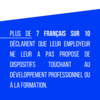
Purchasing power and empowerment
To find out, nothing could be easier. All you have to do is find out the reasons given by the American resigners. Top of the list? Low wages. We can then assume two things: either the French employees still on board have a salary that suits them perfectly or they are betting on the period of annual professional interviews to negotiate it upwards. This is a gamble that is likely to pay off, since the balance of power has shifted in a context of labour shortages. Moreover, all the indicators are green: from the Prime Minister to the boss of employers, Geoffroy Roux de Bézieux, many observers predict that after "two years of lean times, there will be wage increases". However, these increases must take into account inflation, which rose by 2.8% over one year in December... In any case, they will not be enough to retain employees if they are not accompanied by prospects for development. In fact, 20% of employees who plan to leave their jobs during the year will do so to seek better development opportunities*. The problem? More than 7 out of 10 French people say that their employer has not offered them any professional development or training schemes*. This figure is not surprising when you consider that only 10% of management teams identify the lack of career development opportunities as an incentive to leave**.
Customisation and flexibility
Be careful, however, not to turn these aspirations into an obligation. Not all employees see management as the Holy Grail. Not all employees equate development with vertical progression. The organisation must therefore devise alternative career paths. The challenge? Retaining the best talent and thus ensuring the company's long-term survival. This personalisation of career plans poses a new challenge for managers: evolution requires "moving from mass standardisation to mass uniqueness".
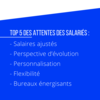
And this primarily concerns working methods. Dreaded at the end of the first confinement, teleworking has finally become a way of life. Even in France. French employees now spend 1.9 days per week teleworking, which is close to the world average of 2.1 days**. 35% of employees would even be likely to leave their company if they were forced to work full-time*. What do they expect? Flexibility, which is the only way to satisfy these new requirements, such as the possibility of choosing one's hours and being more flexible in the organisation of one's work. Flexibility that also allows them to diversify their place of work, to work from more informal, more convivial spaces.
More human offices
Indeed, while employees want physical offices, they expect more from their employer in terms of value proposition. And the least we can say is that everything remains to be done. More than a third of French people feel that their workplace is not pleasant. 83% want "more human**" offices. It is therefore necessary to offer sustainable offices, equipped with high-performance technologies and therefore capable of creating a real culture of well-being. But how can this be achieved when office days still bear the scars of the crisis and its countless health protocols? It seems difficult to improve the quality of life at work when the quality of air is still too often lacking.

Act upstream by carefully choosing the furniture and building materials used. Prevention systems to warn occupants of deteriorating air quality or air renewal systems can also be put in place. But more innovative and less intrusive technologies exist to allow everyone to collaborate in healthier workspaces. This is the case with UV-C, which is currently the best solution for sanitising a space. For example, they can disinfect the air by neutralising 99.9% of micro-organisms. This will meet the expectations of the 47% of employees who still consider their company to be a good place to work... and recharge the batteries of the 42% who do not feel sufficiently "energised at the office***".
Marianne Fougère
* Qualtrics, "2022 Employee Experience Trends. The 4 things your people need you to know", August-September 2021.
** JLL, "Barometer on employees' new work preferences, May 2021.
*** JLL, "The regenerating office", 2021.

